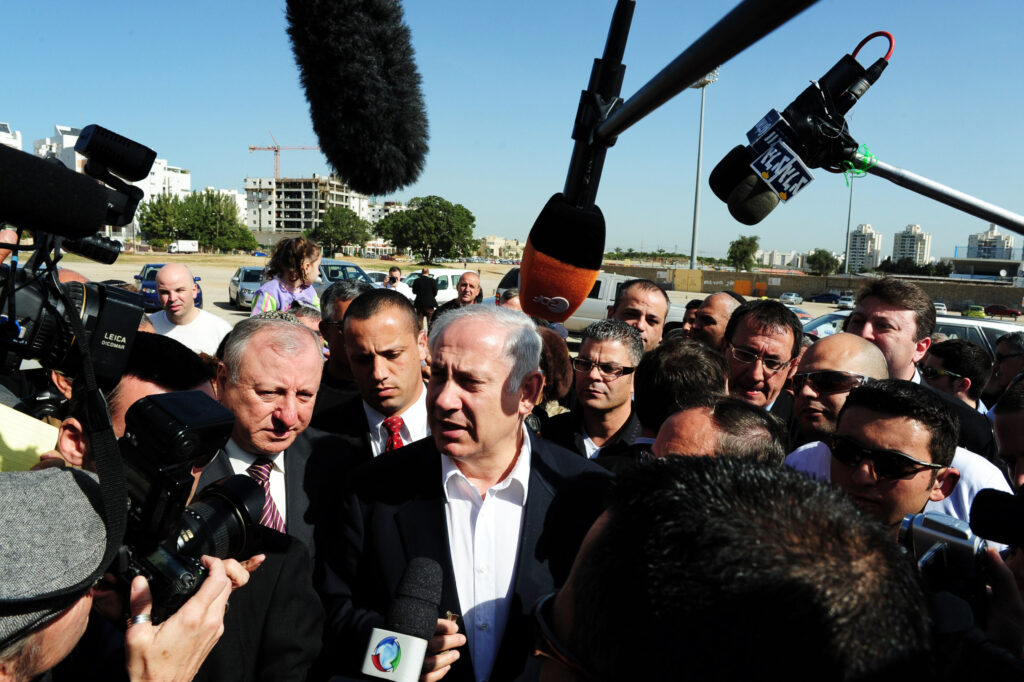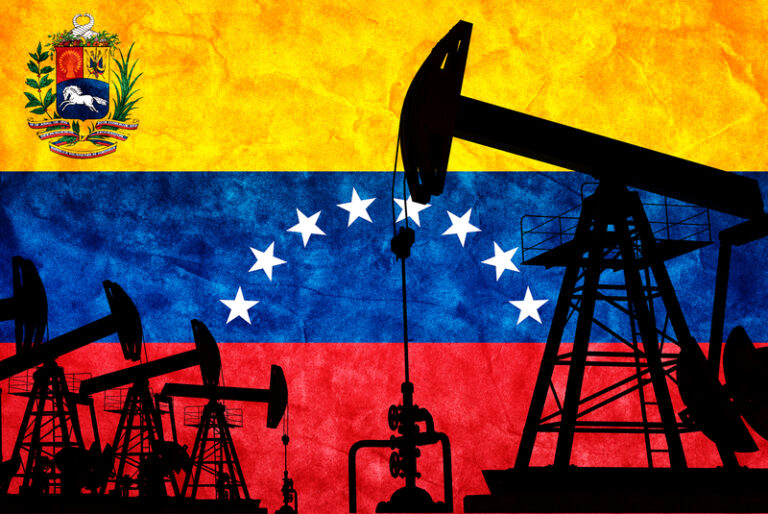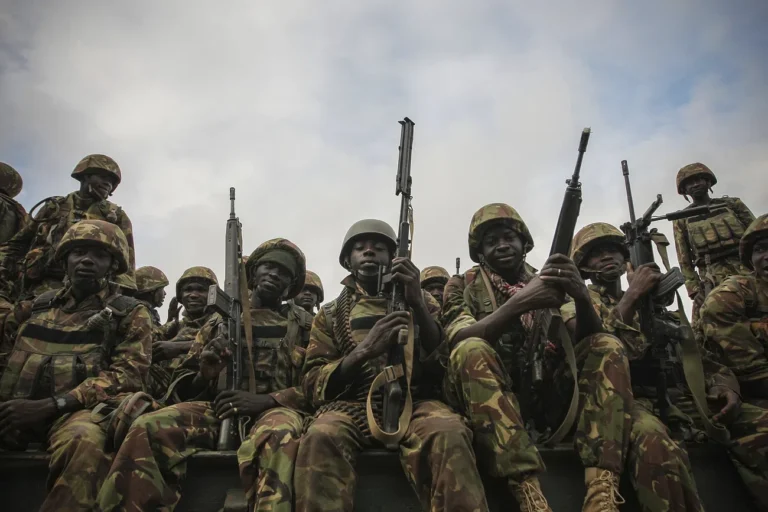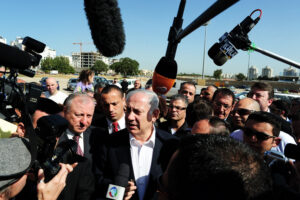
In the last several months, humanity has been facing a dire crisis in the Middle East, unfolding as a result of a long history of moral and legal failures. The outcome of this crisis will depend on how people, governments and institutions are able to respond, considering the urgency and complexity of the situation. As images of entire residential areas leveled to dust, shattered hospitals, and starving families have flooded all media, especially social media, the reality of Gaza’s humanitarian catastrophe cannot be ignored. To this day, more than 36,000 Palestinians have perished in Israel’s unprecedented mass bombardment, hundreds of thousands have been either severely injured or still to be discovered under the rubbles while another 1.7 million have been internally displaced, repeatedly trapped in a landscape of ruin with no refuge in sight. This unfolding tragedy not only questions our shared sense of humanity but also exposes the fragility of international laws – a construct painstakingly developed over centuries, now seemingly either becoming invaluable or unfortunately failing against countries and political forces that were once considered democratic heavens. In truth, the conflict between Israelis and Palestinians no longer falls solely on territory and religion, but rather on moral principles and human rights raised, this time, by the Palestinian Cause.
Looking back, the Israeli-Palestinian conflict did not commence on October 7; it is a deeply rooted struggle that has persisted for decades. Since its founding in 1948, Israel has been embroiled in conflicts with its Arab neighbors and the Palestinian population. According to the UN Press Release on the 17th of May 2024, the initial war known as the Nakba of 1948 and today’s Nakba in Gaza, seem to be connected. While some in politics and mass media might consider them as separate events, experts have documented what seems to be a pattern perpetuated by the Israeli regime that is the agenda of Palestinian displacement.
“Today, we again commemorate the events of 1948 and subsequent years, which led to the dispossession and displacement of approximately 750,000 Palestinians from their ancestral lands,” said Cheikh Niang (Senegal), Chair of the United Nations Committee on the Exercise of the Inalienable Rights of the Palestinian People.
The Nakba, which means “catastrophe” in Arabic, refers to the mass displacement and dispossession of Palestinians during the 1948 Arab Israeli War. Initially a multi-ethnic and multi-cultural society, Palestiniansinterests and voice were ignored as the UK and France were establishing the creation of Israel, as the land of hope for the Jewish community after the Holocaust in Europe. The Zonist movement was born at the onset of this massive immigration, evolving from a hippy-like community to an army of messianic colonizers. With the UN General Assembly passing the November 1947 resolution partitioning Palestine into two states, one Jewish and one Arab, with Jerusalem under a UN administration, the Arab world rejected the plan. For Palestinians, this plan was unfair and violated the UN Charter. This rejection was met with Jewish militia attacks against Palestinian villages, forcing thousands to flee. The tension escalated into a full blown war in 1948, with the end of the British Mandate and the departure of British forces, the declaration of independence of the State of Israel and the entry of neighboring Arab armies. Armed with light and heavy weapons from British “leftovers” and countries aiming to disrupt the British and French empires in the Middle East, the newly established Israeli forces launched a major offensive, leading to the permanent displacement of more than half of the Palestinian population. As early as December 1948, the UN General Assembly called for the return of the refugees on their territories, the restitution of their property and compensation (Resolution 194 (II)). However, 76 years later, despite countless UN resolutions, the rights of the Palestinians continue to be ignored .
Following the statements made in the United Nations Press Release, legal, health and political experts have witnessed and expressed strong concerns about the reaction of the Israeli regime and its military forces in response to the crimes committed by Hamas on the 7th of October 2023. Cheikh Niang (Senegal), Chair of the United Nations Committee on the Exercise of the Inalienable Rights of the Palestinian People, stated that “the Israeli response was and continues to be disproportionate and indiscriminate”. In doing so, Niang emphasized that “breaches of norms by one group do not excuse breaches of international laws and norms by another”. In reference to the Nakba, these experts who participated in the United Nations Press Release, confirmed that since 1948 to present day, Israel continues its illegal actions. Ardi Imseis, Assistant Professor and Academic Director at Queen’s University, Ottawa, highlighted that the UN Resolution 181, passed on November 29th 1947, recommended the partition of Palestine against the wishes of its indigenous population and in violation of international law. He noted that the primary objective of the Western states, which then dominated the United Nations, was to resolve Europe’s long-standing Jewish question in the aftermath of the Holocaust, doing so at the expense of the innocent Palestinian population. Imseis further emphasized that little to nothing is being done by those in power to prevent the ongoing Nakba. Phyllis Bennis, Fellow at the Institute for Policy Studies, echoed similar sentiments, however instead emphasized upon the apartheid facilitated by Western colonial interests. Specifically, Bennis presented the case of the apartheid in South Africa and in Palestine to show a westernized trend. She pointed out that the United States is now the main enabler of the ongoing Nakba in Gaza. For context, ever since the “special relationship” between the United States and the Israeli government was established in 1967, the U.S has ensured Israel’s absolute impunity. One profund proclamation of this is the United States’ use of their veto power at the UN to block the ceasefire efforts in 2006, 2008, 2012, 2014, 2018, 2021, and current proposed resolutions. In redefining the UN’s role in dealing with an apartheid, Bennis concluded the press release by urging Western politics and those present to “be on the right side of history.” and most importantly obey the international rule of law.
But what is so important about international laws?
Contemporary international laws relate to human rights and armed conflicts. These laws were established on a number of core treaties known as the international criminal laws. Under these sets of laws, a few principles are of great relevance in the current moment. The main restrictions and obligations in warfare bundled into the Four Geneva Conventions of 1949 are that “armed forces must distinguish combatants from civilians to ensure maximum protection of the latter at all times; must not target civilians and their infrastructures or deprive them of food, water, and necessities of survival; and refrain from murder, mutilation, torture, cruel treatment, and taking of hostages.” What is particularly important to recognize about these conventions is that they have been ratified by every single country in the world – including Israel and Palestine – and rest on the fundamental international rule that treaty obligations depend on the consent of state parties. These consensual rules apply to every state party regardless of whether any other state or non-state actor abides by them. In other words, none of the prohibited acts are permissible because they have been violated by some other actor. International law nowhere permits revenge as an excuse for prohibited acts.
These laws are universally understood and adaptive to any state practice, yet every one of the above principles have not only been rejected, but also grossly and systematically violated, primarily by Israel based on the disproportionate killing and destruction in Gaza, as well as by Hamas. To clarify, Israel’s trend of systematic violations of international principles pre-date the escalation that began on October 7, as the United Nations has repeatedly documented for almost six decades in the West Bank, East Jerusalem, and Gaza. One simple example of the biased perspective between how the ‘rules’-based and legal principles apply is, as described by the Arab Center of Washington, that while there is legitimate outrage and concern about the 240 Israeli taken hostage by Hamas, there is little focus on over 3,600 Palestinians held in illegal ‘administrative detention’ in Israeli military prisons, in addition to thousands of other political prisoners, according to the Prisoner Support and Human Rights Association. The administrative prisoners have been held without charge or trial, on information kept secret from them, while administration detention orders are indefinitely renewed every six months. Under such illegal circumstances, these fit the definition of hostage-taking, which the ICRC defines as a crime of arbitrary deprivation of liberty.
Another set of binding legal principles fall under the Hague Regulations and Fourth Geneva Convention’s provisions regarding the occupation law. The ‘rules’-based order seems to have surpassed the primacy of the occupation law in the current conflict; the occupation law changes what type of obligations apply, and to whom. These involve the core prohibitions against “collective and individual forcible transfer of a population within or from an occupied territory; reprisals against civilians and their property, and the taking or destruction of any civilian or cultural property; and collective punishment or punitive sieges of an occupied population.” Under such occupation law, an occupied person can never acquire sovereignty over the occupied territory, and it is the obligation of the occupying power to provide food, medical care, hygiene, and other necessities to the population it is occupying. Again, in the application of the current ‘rules-based order,’ these legally binding principles are being stood on their head while Israel, the occupier, has burdened the international community with the responsibility of trying to ensure occupied Gazans have the minimum they need to survive. And the Western powers defining what the rules are, appear to demand few limits on Israel’s asserted right to self defense, whether in the amount of force, collective punishment, use of famine or entrapment as weapons of war, or even the constant targeting of humanitarian organizations and killing of their staff. Finally, in one of the most serious obstructions of the occupation law, Palestinians who resist occupation – a right enshrined in international law – have been labeled as terrorists. While this designation has no definition in international law, it puts a dangerous political pressure on the occupied population, giving Israel some form of “permission” by the Western governments to commit unprecedented crimes against humanity.
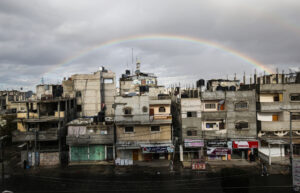
Crime against Humanity – Apartheid – Its Legal Implications
The prohibition of crimes against humanity stands as one of the most fundamental principles in international criminal law. This concept, with roots extending back more than a century, was highlighted in the 1945 Charter of the International Military Tribunal, which established the court that prosecuted members of Nazi Germany’s leadership at Nuremberg, especially towards the atrocities committed as part of the Holocaust. Crimes against humanity is therefore considered the gravest offense under international law, reflecting humanity’s collective commitment to justice and human dignity. The 1998 Rome Statute of the International Criminal Court (ICC), which came into effect in 2002, codifies 11 specific crimes that qualify as crimes against humanity when “committed as part of a widespread or systematic attack directed against any civilian population, with knowledge of the attack”, according to the Human Rights Watch. The statute defines an “attack” as a “course of action involving the multiple commision of acts… pursuant to or in furtherance of a State or organizational policy.” The term “widespread” pertains to the extensive scale of acts or the number of victims involved, while “systematic” refers to a “pattern or methodological plan.” Importantly, crimes against humanity can occur during peacetime or armed conflict, underscoring their relevance across different contexts. The Explanatory Memorandum of the Rome Statute elaborates that crimes against humanity “are particularly odious offenses in that they constitute a serious attack on human dignity or grave humiliation or a degradation of one or more human beings.” These offenses are not isolated or sporadic events; rather, they are part of a government policy or a widespread practice of atrocities tolerated or condoned by a government or a “de facto” authority.
Beyond its mere prohibition, the implementation of an apartheid upon a population has been recognized as a crime against humanity for more than 50 years. The 1968 Convention on the Non-Applicability of Statutory Limitations to War Crimes declared that crimes against humanity included “inhuman acts resulting from the policy of apartheid.” In 1973, the UN General Assembly adopted a specific convention on apartheid, the Convention on the Suppression and Punishment of the Crime of Apartheid (“Apartheid Convention”), declaring it to constitute a crime against humanity. The Apartheid Convention, which came into force in 1976 and has 109 states parties, including the state of Palestine but not Israel, states: The term “the crime of apartheid”, which shall include similar policies and practices of racial segregation and discrimination as practiced in South Africa, shall apply to the following inhumane acts committed for “the purpose of establishing and maintaining domination by one racial group of persons over any other racial group of persons and systematically oppressing them”.
The Apartheid Convention then identifies a number of “inhuman acts” that, when committed for the purpose of domination and systematic oppression, make up the crime of apartheid, including:
(b) Deliberate imposition on a racial group or groups of living conditions calculated to cause its or their physical destruction in whole or in part;
(c) Any legislative measures and other measures calculated to prevent a racial group or groups from participation in the political, social, economic and cultural life of the country and the deliberate creation of conditions preventing the full development of such a group or groups, in particular by denying to members of a racial group or groups basic human rights and freedoms, including the right to work, the right to form recognized trade unions, the right to education, the right to leave and to return to their country, the right to a nationality, the right to freedom of movement and residence, the right to freedom of movement and residence, the right to freedom of opinion and expression, and the right to freedom of peaceful assembly and association;
(d) Any measures including legislative measures, designed to divide the population along racial lines by the creation of separate reserves and ghettos for the members of a racial group or groups, the prohibition of mixed marriages among members of various racial groups, the expropriation of landed property belonging to a racial group or groups or to members thereof.
The 1977 Additional Protocol I to the Geneva Conventions, with 174 states parties, identifies “practices of apartheid and other inhuman and degrading practices involving outrages upon personal dignity, based on racial discrimination” as a grave breach of the treaty.
The Rome Statute of 1998, which has 123 states parties, identifies apartheid as a crime against humanity, defining it as: Inhumane acts of a character similar to those referred to in paragraph 1, committed in the context of an institutionalized regime of systematic oppression and domination by one racial group over any other racial group or groups and committed with the intention of maintaining that regime.
The Zionist Agenda – The Systemic Occupation – How it plays into the Israeli and Palestinian Social Construct
According to the Human Rights Watch report on December 5, 2023, Palestinians have long used the term “apartheid” to describe the reality of their lives under Israeli rule. In September, Tamir Pardo, who headed the Mossad, Israel’s national intelligence agency, under Prime Minister Benjamin Netanyahu from 2011 to 2016, said that Israel is imposing apartheid on the Palestinians. In August, the former Northern Commander of the Israeli army described the situation in the West Bank as one of “total apartheid.” In June, former United Nations Secretary-General Ban Ki-Moon and former UN Human Rights Commissioner Mary Robinson, finishing up a trip to Israel and Palestine, highlighted the “ever growing evidence” they found that “the situation meets the international legal definition of apartheid” and highlighted that they “heard no detailed rebuttal of the evidence of apartheid.” In April 2021, after years of research, detailed case studies and a careful review of Israeli government planning documents, statements by officials and other sources, Human Rights Watch found that Israeli authorities have been committing the crime of apartheid against Palestinians, based on the Israeli government policy to maintain domination over Palestinians and grave abuses against Palestinians in the occupied territory. Across the West Bank, East Jerusalem and Gaza, Israeli authorities have sought to maximize the land available for Jewish communities and minimize the number of Palestinians on that land by concentrating most Palestinians in dense population centers. In Jerusalem, for example, the government plan for the municipality explicitly refers to “maintaining a solid Jewish majority in the city and even specifies its target demographic ratio across West and occupied East Jerusalem. Politicians presented in the Netanyahu government exclaimed a prime goal for Israel: “The Jewish people have an exclusive and indisputable right to all areas of the Land of Israel”, which the prime minister clarified to include the West Bank.
Israeli authorities have also implemented policies to mitigate what they call a “demographic threat.” For more than two decades, they have barred, with very few exceptions, granting long term legal status inside Israel to Palestinians from the West Bank and Gaza who marry Israeli citizens or residents, while conferring such status to spouses from virtually every other country. Under Israeli law, a Jewish citizen of any other country who has never been to Israel can move there and automatically gain citizenship, while Palestinians expelled from their homes in what became Israel and living for more than 75 years in refugee camps in Gaza (the majority of Gaza’s population are refugees) or a nearby country cannot.
In addition, Israeli authorities have maintained a two-tiered legal system: methodically privileging Israelis, who have the same rights and privileges wherever they live, while repressing Palestinians to varying degrees wherever they live. As Hagai El-Ad, the former director of the Israeli human rights group B’Tselem, wrote, “There is not a single square inch in the territory Israel controls where a Palestinian and a Jew are equal.” Following the Human Rights Watch, the oppression is most severe in the occupied territory. One prime example of such is the imposing and harsh Israeli military rule on Palestinians in the West Bank while affording Jewish Israelis to live in a segregated manner in the same territory with full rights under Israeli civil law.
Although many systematic abuses come together to form an apartheid, the Human Rights Watch report has focused on the prime five abuses, which are: sweeping restrictions on movement in the form of the Gaza closure and a permit regime in the West Bank; confiscation of more than a third of the land in the West Bank; harsh conditions in parts of the West Bank that have forced thousands of Palestinians out of their homes, which amounts to forcible transfer; denial of residency rights to hundreds of thousands of Palestinians and their relatives; and the suspension of basic civil rights to millions of Palestinians living under military rule.
Overall, Israel, under the status of a democratic state, has implemented numerous civil and common law for its citizens. For example, Israel’s Basic Law of human dignity and liberty provides for freedom of speech and expression. Additionally Israel’s parliamentary democracy enables for a legal protection for civil rights, such as freedoms of assembly, association, and religion. Citizens can easily vote, run for office, and participate in political processes. However, as documented in the Human Rights Watch report released on the 17th of December, 2019, Palestinian’s access to similar civil rights are completely denied. Although their cultural beliefs would enable for such rights, Israel’s occupation of the territory prohibits for any liberty to be of realization. For example, on June 7, 1967, the Israeli army issued a military proclamation on occupied West Bank and the Gaza Strip that permitted the application of the Defence (Emergency) Regulations of 1945, which British Mandate authorities enacted to quell growing unrest. The regulations empower authorities, among other things, to declare as an “unlawful association” groups that advocate for “bringing into hatred or contempt, or the excitement of disaffection against”, authorities, and criminalize membership in or possession of material belonging to or affiliated, even indirectly, with these groups. Another example is the promulgation of the Military Order 1651. In 2010, the Israeli army replaced 20 prior orders and imposed a 10 year sentence on anyone who “attempts, orally or otherwise, to influence public opinion in the Area [the West Bank] in a manner which may harm public peace or public order” or “publishes words of praise, sympathy or support for a hostile organization, its actions or objectives,” which it defines an “incitement”. This further vaguely details the offense, enabling for the arrest lasting potential life imprisonment for an “act or omission which entails harm, damage, disturbance to the security of the Area or the security of the IDF”. As a whole, the Israeli army has arrested Palestinian journalists, activists and others for their speech and activities – much of it non-violent – protesting, criticizing or opposing Israeli policies. Israel’s indefinite suspension of Palestinian civil rights has therefore crippled the ability of Palestinians to have a more normal public, political life.
Over more than 16 years, Israeli authorities have imposed a generalized ban on travel outside of Gaza for the more than 2.2 million people living there, denying them freedom of movement. Rather they have instituted a “policy of separation” between the West Bank and Gaza, frequently blocking the movement of Palestinians between the two parts of the occupied territory. Additionally, they have imposed sweeping restrictions on the entry and exit of goods, all of which demolished the economy of Gaza. Furthermore, Israeli authorities have continued to expand settlements in the West Bank, violating international law. The settlers have ruined hundreds of Palestinian homes and other structures through bombardments and other restricting laws of “building permits”, which of course Israeli authorities have made nearly impossible for Palestinians to obtain. For example, between 2016 and 2018, Israeli authorities issued 100 times more demolition orders than building permits for Palestinians living in the West Bank under Israel’s control. Rights and privileges are also determined by different colored identity cards and passports which are different for Palestinians in the West Band than Jewish Israeli settlers. Israeli settlers, for example, can freely move between the West Bank and Israel, while Palestinians require difficult-to-obtain permits to enter large parts of the West Bank, East Jerusalem and Israel. The more than 645 checkpoints and other permanent obstacles Palestinians face can make a short commute to school or work into an hours-long struggle.
Although “state security” may be used as a primary justification by the Israeli government, it does not justify apartheid and racial and/or ethnic persecution, just as torture or other unlawful actions cannot be justified under the same excuse. At the same time, of course, while the oppressed can resist the oppressor, it can never justify crimes against civilians, as conducted by armed Palestinian groups.
The Powers at Play and the Politics
International law requires political will to enforce it, and weaknesses in the international enforcement system have, as seen today, been exploited by powerful states. While Western democracies have founded the United Nations and the International Court of Justice in the aftermath of WWII to ensure that the most vulnerables are never left unprotected again, the decades-long conflict in Palestine has exposed a concerning trend rising. With western powers manipulating the main mechanisms designed for the implementation and respect for the rule of law, the established international law has failed to end the disaster in Gaza and the broader Israel-Palestine conflict. The principal problem here is the structure of the UN organs and the division of authority between the General Assembly and the Security Council as set out in the UN Charter. According to the Arab Center Washington DC, the 193 member assembly represents the vast majority of the countries of the world, but also the majority of peoples of the world. However, the 15 member Security Council permanently represents only three Western states, Russia, and China, as well as ten other states on a rotating basis. Time and again a single member of the five powerful Security Council states has defeated the will of the majority General Assembly states in refuting the global demand for a ceasefire in Gaza. Under the UN Charter, only the Security Council can invoke its Chapter VII authority for armed intervention to halt breaches of peace and security, and the United States has continued to use its veto powers to prevent any such action against Israel. Although the General Assembly can, and has, used its authority to debate and vote on urgent matters that are deadlocked at the Security Council under the Uniting for Peace Resolution, the General Assembly has only the power to recommend. In a similar process, the International Criminal Court is paralyzed by the pressure placed on it by its major funders and the politics that the Western powers bring to bear. However, without American backing at the Security Council, there will be no UN referral to the ICC. In particular, the United States has taken a number of measures to threaten or terminate funding to the ICC and its staff, including revoking former Prosecutor Bensouda’s visa in 2019; Trump’s Executive Order imposing asset freezes and entry bans on staff of the ICC in 2020; and threatening economic sanctions if the ICC moved forward on investigations against Israeli as well as US nationals.
The ICJ, on the other hand, is independent of the UN political bodies in its decision making, but as the international tribunal of the United Nations, must revert to the Security Council for enforcement of its judgements. This process undermines the work of the ICJ in their call for provisional measures of January 26, 2024, and again on March 28, 2024, that ordered Israel to terminate all genocidal acts in Gaza. This would immediately allow unrestricted humanitarian aid including food, water, and other essentials to the population; and to cease incitement to genocide and punish those inciting genocide against Palestinians. In denouncing the ICJ’s orders, the United States and Israel have resorted to calling South Africa’s case of genocide ‘meritless’. Within a day of the issuance of provisional measures, Israel claimed that UNRWA staff members participated in the Hamas attack on Israel in October, and, without Israel providing any evidence of wrongdoing or an independent investigation, the United States and other major western donors suspended their funding of the organization. Therefore, with American opposition at the Security Council, enforcement of the ICJ’s provisional measures is blocked at the United Nations.
In facing this same refusal, the UN machinery has been similarly powerless to do much more than issue reports and resolutions. Surprisingly, the UN’s Human Rights Council on April 5 called on all states to halt arms sales to Israel, highlighting upon the ICJ’s findings on genocide and therefore demanded accountability for war crimes and crimes against humanity occuring in Gaza. Yet, critical as such resolutions are proposed in reinforcing ‘what the law is’, no other UN organ beside the Security Council has a mechanism to enforce them.
Under this unprecedented blind support from Western democracies to Israel, even in the face of continuous crimes against Humanity, the world has resorted to the rulings of national governments and courts, emphasizing the power of civil society. In particular, the governments of South Africa and Nicaragua have taken the lead in filing genocide and complicity to genocide claims in the ICJ. In following their stand, many other countries have joined in their applications. Within the national level, following the Arab Center in Washington DC, legal groups have filed a case in the United States against government officials for complicity with Israeli genocide; a complaint in the United Kingdom to investigate officials’ complicity with Israeli war crimes, and a lawsuit in Germany for its arms sales to Israel. They also succeeded in obtaining court orders halting arms exports to Israel in the Netherlands.
As seen, the ICJ order of January 26 to Israel to undertake measures to prevent genocide in Gaza disappointed many in not calling for the ceasefire that South African had requested. Although negotiations or resolutions could have been discussed and implemented to call for a ceasefire, the direct implementation of South Africa’s requests would have been difficult for the ICJ to issue as it has jurisdiction over Israel, but not over Hamas. However, ICJ did order Israel to stop committing the acts – killing, injuring, creating conditions of life likely to kill – that constitute genocide. It could have even gone further, as had suggested at least one judge, calling for Israel to withdraw forces from Gaza. That said, what the ICJ did would have effectively ended Israeli troop operations and aerial bombardment in Gaza, had Israel complied.
On the other hand, Nicaragua’s case against Germany made the world realize that it is not only Israel that commits harm against the people of Palestine, but also the states that support it. Germany is, after the United States, the second largest supplier of military equipment to Israel. Prior to Nicaragua’s suit, it was not widely understood that providing Israel with military means is a wrongful act. However, now all governments that supply Israel are answerable for promoting the extermination of the people of Palestine.
Following the oral proceedings within the two contentious cases (South Africa’s and Nicaragua’s) and the Advisory case, the evidence of Israel’s violent invasion, massive bombardment and destruction of Gaza, and its colonizing disruption in both the West Bank and Gaza Strip were exhaustively set out for a global audience to read and watch in real time. Therefore, Israel’s impunity has come to an end on the international stage. The Advisory case has dealt a major blow against Israel’s narrative that its occupation of the territories it has controlled since 1967, as well as its treatment of Palestinians within Israel since 1948. In the oral proceedings at the ICJ in the Advisory case, one state after another denounced Israel’s practices as apartheid, as violations of the law on occupation, and of Palestinians self-determination.
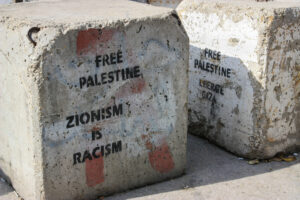
So what now?
With the International Court of Justice (ICJ) proceedings shedding light on Israel’s actions and the widespread condemnation of its practices, the stage is set for a key shift in global perception and accountability. This momentum highlights the critical importance of the International Criminal Court Prosecutor’s decision. Specifically, ICC Prosecutor Karim A.A. Khan asked for the arrest of Yahya Sinwar (Head of the Islamic Resistance Movement (“Hamas”) in the Gaza Strip), Mohammed Diab Ibrahim Al-Masri, more commonly known as DEIF (Commander in Chief of the military wing of Hamas, known as the Al-Qassam Brigades), and Ismail Haniyeh (Head of Hamas Political Bureau) for war crimes and crimes against humanity on the territory of Israel and the State of Palestine (in the Gaza Strip) from at least 7 October 2023. In addition, Khan explicitly calls “for the immediate release of all hostages taken from Israel and for their safe return to their families”. Regarding the arrest warrants upon the government of Israel, Khan calls for the arrest, as well, of Benjamin Netanyahu, the Prime Minister of Israel, and Yoav Gallant, the Minister of Defence of Israel, for committing war crimes and crimes against humanity on the territory of the State of Palestine (in the Gaza Strip) from at least 8 October 2023. Within the published statement on the applications for arrest warrants, the ICC Prosecutor Khan emphasizes, “Israel, like all States, has a right to take action to defend its population. That right, however, does not absolve Israel or any State of its obligation to comply with international humanitarian law. Notwithstanding any military goals they may have, the means Israel chose to achieve them in Gaza – namely, intentionally causing death, starvation, great suffering, and serious injury to body or health of the civilian population – are criminal”. In recognition of ICC Prosecutor Karim A.A. Khan’s astounding bravery, the Palestinian Cause can finally see some light towards a ceasefire and most importantly peace.
On the international front, such massive reflection of rule of law has brought together a remarkable ovation of the youth generation around the world, advocating for justice and human rights. From student protests within universities all around the world to the rising resistance of young Jewish Israelis, the younger generation has brought back the true values of humanity. Leaders and activists from universities like Columbia, Science Po, Harvard as well as politicians have become the face of the Palestinian Cause. Furthermore, associations like Jewish Voice for Peace and documentaries such as Israelism have advocated for united peace.
In defending human values, it is imperative that the world, from its citizens to state politicians, collectively strive for the establishment of peace in Gaza, the West Bank, East Jerusalem, and Israel. The world will be more secure by ensuring that human rights are protected for Palestine and all Palestinians. Finally, we must uphold the fundamental values of international human rights and law.
By Ines Billeaud
